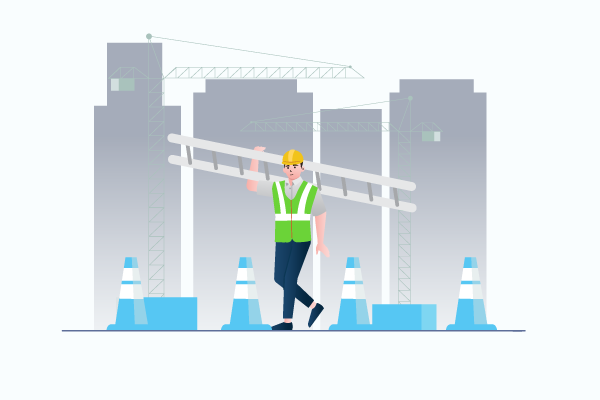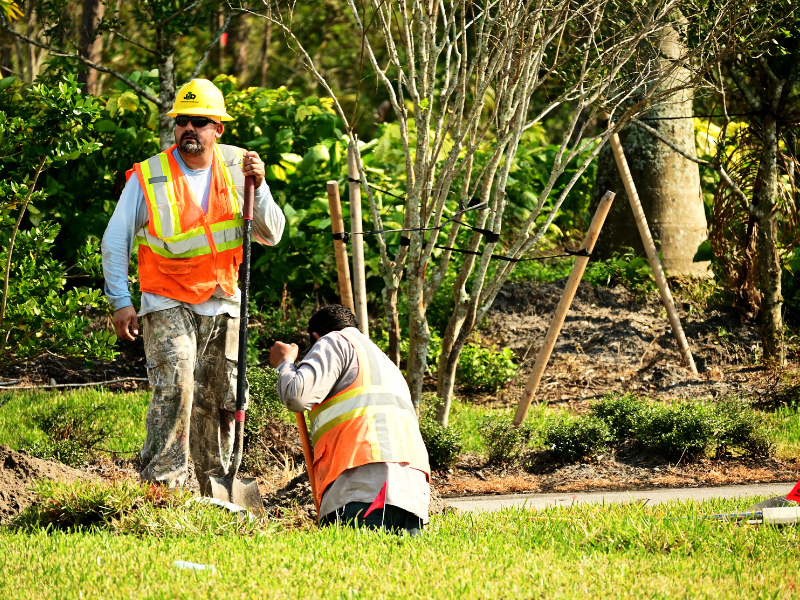Understanding Workers Compensation in Florida
In Florida, comprehending workers’ compensation is crucial. It safeguards both employees and employers, ensuring a smooth business operation.
Unveiling the Basics: Workers Compensation in Florida
This blog post explains the fundamental aspects of workers’ compensation in Florida. It empowers readers to navigate this vital topic confidently, covering legalities, benefits, and procedures.
Let’s explore and gain the knowledge needed for a secure work environment in the Sunshine State.
What is Workers Compensation?
Workers compensation is an insurance system that provides financial and medical benefits to employees who experience work-related injuries or illnesses.
It aims to protect both employees and employers by offering compensation regardless of fault and limiting liability claims.
The key objectives of workers compensation laws are to support injured workers and create a no-fault system for employers. Coverage includes medical expenses, rehabilitation costs, wage replacement, disability benefits, disfigurement compensation, and death benefits for dependents.
The specifics of coverage may vary by jurisdiction, but the overall goal is to ensure injured workers receive necessary care and support while promoting workplace safety.
Eligibility for Workers Compensation in Florida
Who is Eligible for Workers Compensation Benefits?
Workers compensation benefits in Florida are available to employees who sustain work-related injuries or illnesses. To be eligible for these benefits, individuals must meet certain criteria.
Firstly, they must be classified as employees rather than independent contractors. Employees who perform services for wages, including full-time, part-time, and seasonal workers, are generally covered.
Additionally, individuals must work for an employer who carries workers compensation insurance or is legally required to do so.
Types of Employees Covered under Florida Workers Compensation Laws
Florida workers compensation laws encompass a broad range of employees.
This includes individuals employed in various industries, such as construction, healthcare, retail, manufacturing, and service sectors.
Full-time and part-time employees, as well as temporary workers, are typically covered. It is important to note that workers compensation benefits extend to both documented and undocumented workers in Florida.
However, there are certain exceptions for specific categories of employees, such as agricultural workers or casual domestic employees.
Exclusions and Limitations to Eligibility
While workers compensation in Florida covers a wide range of employees, there are some exclusions and limitations to eligibility.
For example, certain types of independent contractors may not be covered by workers compensation insurance.
Additionally, some categories of employees, such as business owners, corporate officers, and certain professionals, may have the option to exempt themselves from workers compensation coverage.
Furthermore, injuries resulting from employee misconduct, intoxication, or self-inflicted harm may not be eligible for benefits.
It is crucial for both employers and employees to understand the specific eligibility requirements and exceptions under Florida’s workers compensation laws.
Consulting with legal professionals or the Florida Division of Workers’ Compensation can provide clarity and ensure compliance with the regulations.
Benefits of Workers Compensation in Florida
- Medical Benefits: Workers compensation in Florida provides coverage for necessary medical expenses related to a work-related injury or illness.
This includes doctor visits, hospitalization, surgeries, medications, rehabilitation services, and other medical treatments deemed necessary for the recovery and rehabilitation of the injured worker.
- Wage Replacement Benefits: When an employee is unable to work due to a work-related injury or illness, workers compensation in Florida offers wage replacement benefits.
These benefits typically cover a percentage of the worker’s average weekly wage and help compensate for the lost income during the period of disability.
- Disability Benefits: Workers compensation in Florida also provides disability benefits to employees who experience a temporary or permanent disability as a result of a work-related injury or illness.
Temporary disability benefits are provided when the employee is temporarily unable to work, while permanent disability benefits are available for those who suffer a permanent impairment or loss of function.
- Rehabilitation Benefits: Rehabilitation benefits under workers compensation in Florida aim to assist injured workers in their recovery and help them return to gainful employment.
These benefits may include vocational training, job placement assistance, physical therapy, and other services designed to enhance the worker’s ability to perform job-related tasks.
- Death Benefits: In unfortunate cases where a work-related injury or illness leads to the death of an employee, workers compensation in Florida provides death benefits to the dependents of the deceased worker.
These benefits typically include financial support to help cover funeral expenses and ongoing financial assistance to the surviving dependents.
These benefits provided by workers compensation in Florida are crucial for ensuring that injured workers receive necessary medical care, financial support, rehabilitation services, and, in tragic cases, support for their dependents.
They play a vital role in helping workers recover, maintain their livelihoods, and rebuild their lives after a work-related injury or illness.
Reporting a Workplace Injury
A. Prompt Reporting of Workplace Injuries: Timely reporting of workplace injuries is crucial to ensure assistance and protect workers’ rights.
B. Procedures for Reporting Injuries: Follow employer’s guidelines to report workplace injuries, providing accurate details of the incident.
C. Timelines for Reporting Workplace Injuries in Florida: Report injuries within 30 days to meet Florida’s reporting deadlines and preserve workers’ compensation benefits.
Filing a Workers Compensation Claim
ONE: Initial Steps after a Work-Related Injury: After experiencing a work-related injury, it is crucial to seek immediate medical attention and notify your employer about the incident.
Promptly reporting the injury and seeking medical care are essential steps to ensure your well-being and initiate the workers’ compensation claims process.
TWO: Notifying the Employer and Filing a Claim: Informing your employer about the injury is necessary to initiate the workers’ compensation claim.
Follow your employer’s specific reporting procedures, which may involve completing forms or providing detailed information about the incident.
Timely notification and proper documentation are key to starting the claims process smoothly.
THREE: Role of the Insurance Carrier and Claims Process: Once the claim is filed, the insurance carrier, which provides workers’ compensation coverage, becomes involved.
They will evaluate the claim, review medical records, and determine the eligibility for benefits.
The claims process may involve additional investigations, interviews, or assessments to assess the extent of the injury and its impact on your ability to work.
FOUR: Possible Outcomes of a Workers Compensation Claim: The outcomes of a workers’ compensation claim can vary depending on the circumstances.
If the claim is approved, you may receive benefits such as medical treatment coverage, wage replacement, disability benefits, or rehabilitation services.
However, there is also a possibility of the claim being denied or disputed by the insurance carrier. In such cases, you may need to seek legal assistance or go through an appeals process to fight for your rights and secure the benefits you deserve.
Filing a workers’ compensation claim involves prompt action, proper communication with your employer, navigating the claims process with the insurance carrier, and being prepared for various outcomes.
It is crucial to understand your rights, follow the necessary steps, and, if needed, seek legal guidance to ensure a fair and successful resolution of your workers’ compensation claim.
Dispute Resolution and Appeals
A. Resolving Disputes in the Workers Compensation Process:
Disputes may arise during the workers’ compensation process, such as disagreements over the extent of injuries, the need for certain treatments, or the eligibility for benefits.
Resolving these disputes is crucial to ensure fair outcomes. Communication, negotiation, and collaboration between the parties involved, including the injured worker, the employer, and the insurance carrier, can help reach resolutions and avoid prolonged legal proceedings.
B. Mediation and Alternative Dispute Resolution Options:
Mediation and alternative dispute resolution methods offer alternative avenues for resolving workers’ compensation disputes outside traditional litigation.
Mediation involves a neutral third party facilitating discussions and negotiations to help the parties reach a mutually acceptable resolution.
Alternative dispute resolution options, such as arbitration or negotiation, may also be available, providing more efficient and cost-effective ways to address disputes.
C. Filing an Appeal if the Claim is Denied: If a workers’ compensation claim is denied or disputed by the insurance carrier, the injured worker has the right to file an appeal.
This involves presenting their case before an administrative law judge or a workers’ compensation appeals board.
The appeals process allows for a thorough review of the evidence, legal arguments, and any additional supporting documentation to determine if the denial or dispute was justified.
Seeking legal assistance may be beneficial during the appeals process to ensure a strong presentation of the case and protect the rights of the injured worker.
Resolving disputes, exploring mediation options, and pursuing an appeal if needed are essential steps in the workers’ compensation process.
It is important to understand the available methods of dispute resolution, gather relevant evidence, and consider seeking legal guidance when navigating the appeals process to secure a fair resolution of workers’ compensation disputes.
A. Benefits of Seeking Legal Representation in a Workers Compensation Case:
Seeking legal representation in a workers compensation case can bring numerous benefits. An experienced attorney specializing in workers compensation law has in-depth knowledge of the legal complexities and can provide valuable guidance throughout the process.
They can ensure your rights are protected, help gather evidence, negotiate with the insurance carrier, and maximize your chances of receiving fair and appropriate benefits.
With their expertise, attorneys can help you navigate the complexities of the legal system, increase the likelihood of a successful claim, and provide peace of mind during a challenging time.
B. When to Consider Hiring a Workers Compensation Attorney:
While not every workers compensation case requires legal representation, there are situations where hiring an attorney is advisable.
If your case involves complex issues, such as disputes over the extent of your injuries, denial of benefits, or retaliation from your employer, consulting an attorney becomes crucial.
Additionally, if you are unsure about your rights, facing difficulties in understanding the claims process, or encountering resistance from the insurance company, seeking the assistance of a workers compensation attorney can provide clarity and strengthen your position.
C. How an Attorney Can Help Navigate the Claims Process and Protect Your Rights:
An attorney specializing in workers compensation can play a vital role in guiding you through the claims process.
They can help you understand your rights and obligations, ensure your claim is filed correctly and on time, and communicate effectively with the insurance company and other parties involved.
Attorneys can gather necessary evidence, such as medical records and expert opinions, to support your case and present a strong argument on your behalf.
If disputes or challenges arise, they can represent you in negotiations, mediations, or appeals, advocating for your rights and working towards a favorable resolution.
Their knowledge and experience in the field can help level the playing field and provide the support you need to navigate the complex legal aspects of your workers compensation case.
With legal help, a workers compensation attorney can safeguard your rights, guide you through the claims process, and boost your chances of a successful outcome.
Frequently Asked Questions about Workers Compensation in Florida
Common Questions and Concerns regarding Workers Compensation:
This section addresses the most frequently asked questions and common concerns that individuals have regarding workers compensation in Florida.
It covers topics such as eligibility, coverage, benefits, reporting requirements, and other key aspects of the workers compensation system.
By addressing these common queries, readers can gain a clearer understanding of how workers compensation works in the state.
Providing Informative Answers to Address Common Queries:
In this part, we aim to provide concise and informative answers to the common questions and concerns surrounding workers compensation in Florida.
Each answer is carefully crafted to address the specific query and provide clarity on important aspects of the workers compensation process.
By offering informative answers, we aim to assist readers in navigating the complexities of workers compensation and empowering them with the knowledge needed to make informed decisions and protect their rights.
- Recap of Key Points: This section summarizes the key points discussed throughout the article, highlighting the essential aspects of workers compensation in Florida, such as eligibility, benefits, reporting, and dispute resolution.
- Encouragement to Seek Further Information and Assistance: We encourage readers to seek additional information and assistance, such as consulting legal professionals or the Florida Division of Workers’ Compensation, to gain a deeper understanding of workers compensation and ensure compliance with regulations.
- Importance of Understanding Workers Compensation to Protect Employees’ Rights: Understanding workers compensation is crucial for safeguarding the rights of employees.
By familiarizing themselves with the system, employees can ensure they receive the necessary benefits and support in the event of a work-related injury or illness.
Knowledge of workers compensation empowers employees to assert their rights and navigate the process effectively.




